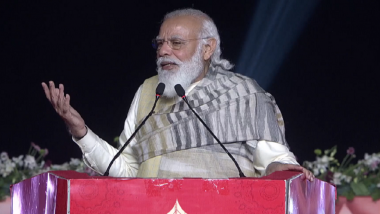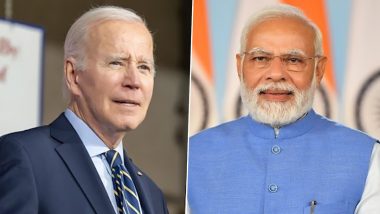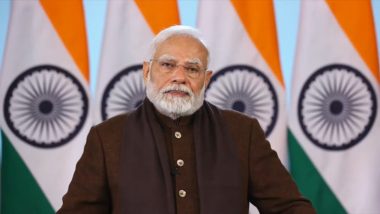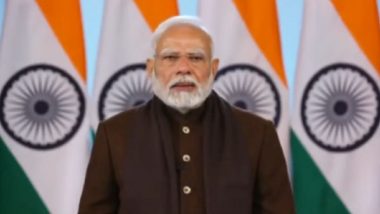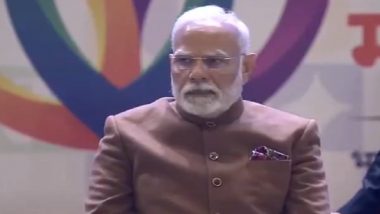New Delhi, December 10: Asserting that Indian democratic traditions predate the Magna Carta, a 13th century document many scholars consider as the framework for a modern republic, Prime Minister Narendra Modi said on Thursday that the day is not far when the world will term India "mother of democracy" if Indians extol the country's democratic history with confidence.
Laying the foundation stone of a new Parliament building here, Modi quoted ancient texts and referred to kingdoms like that of the Licchavis, referred as a republic in many texts, to say that democracy is mostly about polls and governance in the rest of the world, but in India it has been a "value, a way of living and the soul of the nation's life". Also Read | ‘Uyghur Genocide’: Raza Academy Chief, Five Others Stage Protest Outside Chinese Consulate, Detained by Mumbai Police.
Systems and norms may have changed from time to time but democracy always remained our soul, he said. Noting that doubts were expressed on the future of democracy in India after the country won independence in 1947 with naysayers citing its illiteracy, poverty, social diversity and lack of experience, he said they were proved wrong and underlined that new generations need to be told why democracy can never come under any harm. Also Read | COVID-19 Impact: Nearly Half of Indian Millennials Report Increased Borrowing in August-September.
The prime minister said that many scholars describe the Magna Carta as the foundation of democracy and then added that Lord Basaveshwara had mentioned about the importance of people's participation in governance in the 12th century in his 'Anubhava Mantapa', considered a parliament for spiritual and philosophical ideas.
Long before this, stone inscriptions, dating back to the 10th century, with reference to 'panchayat' system during the Chola empire have been found in a village in Tamil Nadu, Modi said.
This even spoke about disqualification of those people and their close kin from fighting elections if they cannot explain the source of their assets, he added. These issues were thought over at that point of time and were made a part of our democratic traditions, Modi said, asserting that India's history of democracy is visible across the country.
Terms like 'sabha', 'samiti' and 'ganpati' that existed in those ancient time are still in use, he said, adding that it is ironical that Indian democracy is now seen through the prism of western countries.
"When we extol out democratic history with confidence, then the day is not far when the world will also say that India is mother of democracy, India is mother of democracy, India is mother of democracy," the prime minister said, stressing on his point.
That is why, he said, while voter turnout has been going down in many democracies of the world, it has been rising in India with the youth and women population driving people's participation in elections. The ancient text of Rig Veda also refers to democracy as "collective consciousness", Prime Minister Modi said.
(This is an unedited and auto-generated story from Syndicated News feed, LatestLY Staff may not have modified or edited the content body)


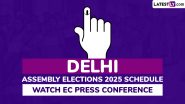
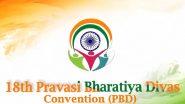

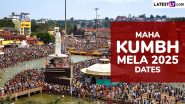







 Quickly
Quickly








